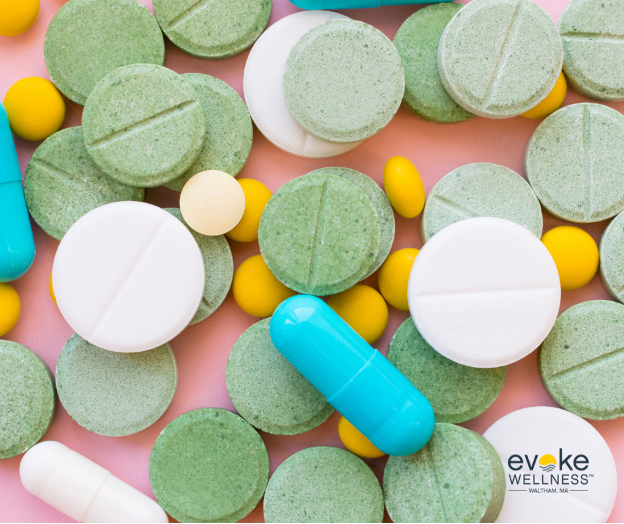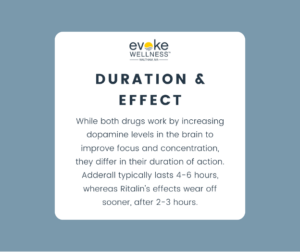As the two most commonly prescribed medications for attention deficit hyperactivity disorder (ADHD), Ritalin and Adderall have important differences in their effects. Understanding the distinctions between these stimulants can help you determine which medication may be most appropriate for your needs. Recent studies indicate that while both can improve focus and concentration, Ritalin acts more rapidly while Adderall’s effects last longer. This article will provide an overview of the critical variations between these drugs, including their chemical composition, typical dosages, duration of action, side effects, addiction potential, and approved uses. We will also examine key factors to weigh when deciding between Ritalin vs. Adderall with your doctor. By becoming informed about the unique properties of each stimulant, you can make the best choice for managing your ADHD symptoms.
Together, let’s embrace the journey to recovery and the promise of a new beginning. Call us at (833) 287-7223 today or reach out online.
Ritalin vs. Adderall: ADHD Medication Summary
Understanding the Differences
Ritalin and Adderall are both stimulant medications prescribed to treat Attention Deficit Hyperactivity Disorder (ADHD) and narcolepsy. However, they differ in their active ingredients and effects. Ritalin contains methylphenidate, which works faster but has a shorter duration of 2-3 hours. Adderall, on the other hand, contains amphetamine and dextroamphetamine salts that last 4-6 hours.
Mechanism of Action
Both medications work by increasing dopamine levels in the brain, speeding up brain activity. This can improve focus, concentration, and impulse control in individuals with ADHD. However, when misused or abused, they can lead to side effects like insomnia, loss of appetite, increased heart rate, and addiction risks.
Risks and Precautions
Long-term abuse of Ritalin or Adderall can alter brain chemistry and pose serious addiction risks. They are sometimes misused with opiates to intensify effects, further compounding health dangers. While nearly indistinguishable when taken as prescribed, abuse and misuse can have hazardous consequences due to side effects and addiction potential. Seeking professional treatment is crucial if addiction develops.
How Do These Medications Treat ADHD?
Boosting Brain Chemicals
Ritalin (methylphenidate) and Adderall (amphetamine/dextroamphetamine) are stimulants that work by increasing levels of key brain chemicals like dopamine and norepinephrine. As explained by experts, this helps regulate focus, attention, and activity levels in those with ADHD.
Regulating Dopamine
More specifically, methylphenidate prevents dopamine from being reabsorbed too quickly, allowing more of it to remain active in the brain. This surplus of dopamine helps balance out the chemical deficiencies underlying core ADHD symptoms.
Safe, Prescribed Use
When taken as prescribed under medical supervision, these medications can significantly improve concentration, impulse control, and hyperactivity in ADHD patients. However, misuse can lead to dependency and other issues, so close monitoring is crucial.
How Are Ritalin and Adderall Different?
Active Ingredients
The key difference between Ritalin and Adderall lies in their active ingredients. Ritalin contains methylphenidate as its active component, while Adderall is a combination of dextroamphetamine and amphetamine.
Side Effects & Risks
Ritalin and Adderall share similar side effects when abused, such as insomnia, appetite loss, anxiety, headaches, and irritability. Long-term abuse can alter brain chemistry. Both carry the risk of developing dependence and potentially leading to substance abuse with harder drugs like methamphetamines.
Is Adderall or Ritalin Stronger?
Potency Comparison
Adderall, a drug containing amphetamine and dextroamphetamine, is generally considered more potent than Ritalin (methylphenidate). According to research, Ritalin is one of the oldest ADHD medications, acting as a central nervous system stimulant that increases dopamine and norepinephrine levels in the brain.
This helps balance brain activity and provides a calming effect for those with ADHD. However, Adderall’s amphetamine components make it more potent and longer-lasting in its stimulant effects.
Therapeutic Effects
Both medications can effectively treat ADHD symptoms like inattention, hyperactivity, and impulsivity. However, some studies suggest Adderall may have a slight edge in improving focus and concentration compared to Ritalin.
The stronger potency of Adderall means lower doses are often required. But individual responses can vary, so dosages are adjusted based on therapeutic effects and side effects.
Potential Side Effects
Due to its increased potency, Adderall also carries a higher risk of side effects like insomnia, appetite suppression, and cardiovascular issues. Ritalin has a more moderate side effect profile but can still cause issues like headaches, irritability, and weight loss.
Ultimately, the choice between Adderall or Ritalin depends on the individual’s response, symptoms, and ability to tolerate potential side effects under medical supervision.
Side Effects of Ritalin and Adderall
Common Side Effects
Both Ritalin (methylphenidate) and Adderall (amphetamine) are central nervous system stimulants that can cause a range of side effects when taken, even at prescribed doses. Common side effects include increased heart rate and blood pressure, anxiety, insomnia, loss of appetite and weight loss. Other potential issues include headaches, stomachaches, irritability and difficulty concentrating.
Abuse and Addiction Risks
When abused or taken in higher doses than prescribed, these drugs carry increased risks. Studies show abuse can lead to addiction as the brain stops producing dopamine naturally and depends on the drugs. This causes withdrawal symptoms like exhaustion, depression and intense cravings when stopping use.
Repeated high doses taken to avoid “crashing” only worsen side effects like paranoia, hallucinations and in severe cases, psychosis or even sudden death due to cardiovascular strain.
Long-Term Effects
Long-term abuse of stimulants like Adderall and Ritalin is particularly damaging to mental health. Depression, anxiety disorders and lingering psychosis can persist for years after stopping use. Adolescents may also experience stunted growth and brain development issues with prolonged misuse of these medications.
Ritalin vs Adderall: ADHD Medication Warnings
Potential for Abuse
Both Ritalin (methylphenidate) and Adderall (amphetamine/dextroamphetamine) are stimulant medications that carry risks of misuse and addiction if abused. When taken correctly under medical supervision, they can effectively treat ADHD symptoms. However, abuse by taking high doses to induce euphoria mimics effects of drugs like cocaine due to their impact on dopamine levels in the brain.
Adverse Effects
Methylphenidate (Ritalin) prevents dopamine reabsorption, causing a buildup that produces an initial euphoric “high” followed by a “crash” of exhaustion, insomnia and depression as dopamine gets depleted. Long-term abuse can disrupt the brain’s natural reward system, leading to dependence. Side effects may include headaches, anxiety, aggression and even seizures.
Contrasting Impact
While both are stimulants, Ritalin has a paradoxical calming effect on those with ADHD by helping them focus, control impulses and remain still. In people without ADHD, it causes wakefulness and hyperactivity as expected from a stimulant. Potential withdrawal symptoms highlight the importance of not stopping these medications abruptly.
Ritalin vs Adderall: FAQ on Prescription Drug Addiction Treatment
Treatment Approaches
With potential for dependence and abuse, it’s crucial to understand treatment options for Ritalin (methylphenidate) and Adderall (amphetamine/dextroamphetamine) addiction. According to experts, effective approaches include:
- Medication-assisted treatment to ease withdrawal symptoms.
- Intensive outpatient or day treatment programs for counseling and support.
- Therapies like EMDR, mindfulness, and relapse prevention strategies.
Identifying the Need
Signs someone may need help include insomnia, anxiety, irritability, and loss of appetite – common side effects of abuse. If dependency develops, reaching out for support is vital to regain control through evidence-based addiction treatment.
Ongoing Recovery
While challenging, recovering from prescription stimulant addiction is achievable with comprehensive care. Combining medical aid, counseling, lifestyle changes, and a strong support system gives the best chance at lasting sobriety and improved well-being.
Conclusion
You now have a deeper understanding of the differences between Ritalin and Adderall. While they are both commonly prescribed stimulants, their chemical makeup, medical uses, side effects, and abuse potential differ. As you move forward with treatment for ADHD, be sure to have an open dialogue with your doctor about which medication may be right for you. Staying informed, getting proper diagnoses, and following prescription guidelines can help you improve focus while avoiding dependence and addiction. Treatment programs that combine therapy, community support, and medication can empower you on your road to success.
Begin Your Journey with Evoke Wellness at Waltham
If you or a loved one is considering outpatient treatment, Evoke Wellness at Waltham invites you to contact us. Our compassionate team is ready to answer your questions, discuss your needs, and help you take the first steps toward recovery. At Evoke Wellness, you will find more than just a treatment program – you’ll discover a community dedicated to your wellness and success. Together, let’s embrace the journey to recovery and the promise of a new beginning. Call us at (833) 287-7223 today or reach out online.



